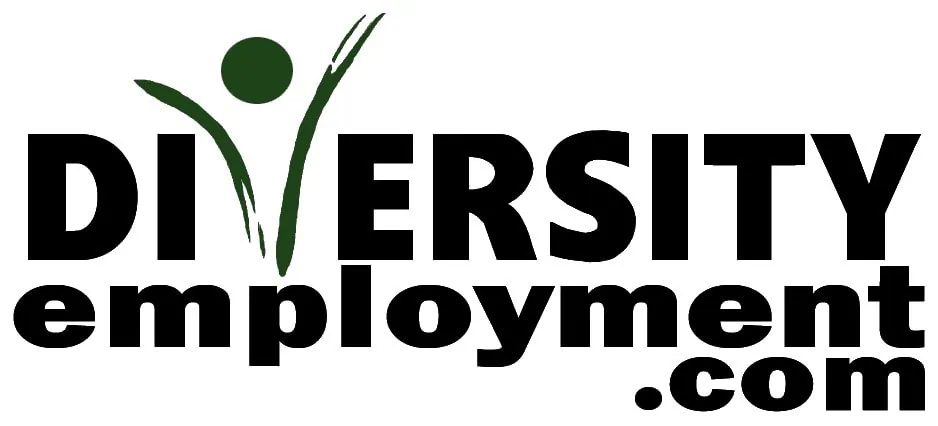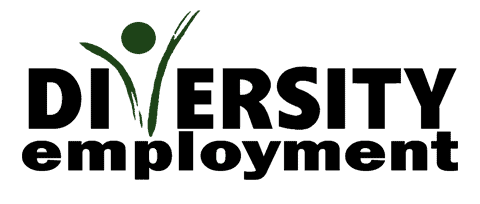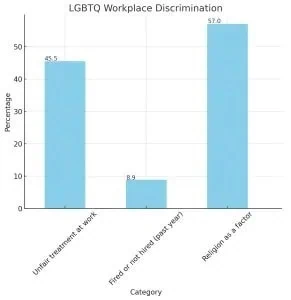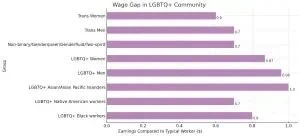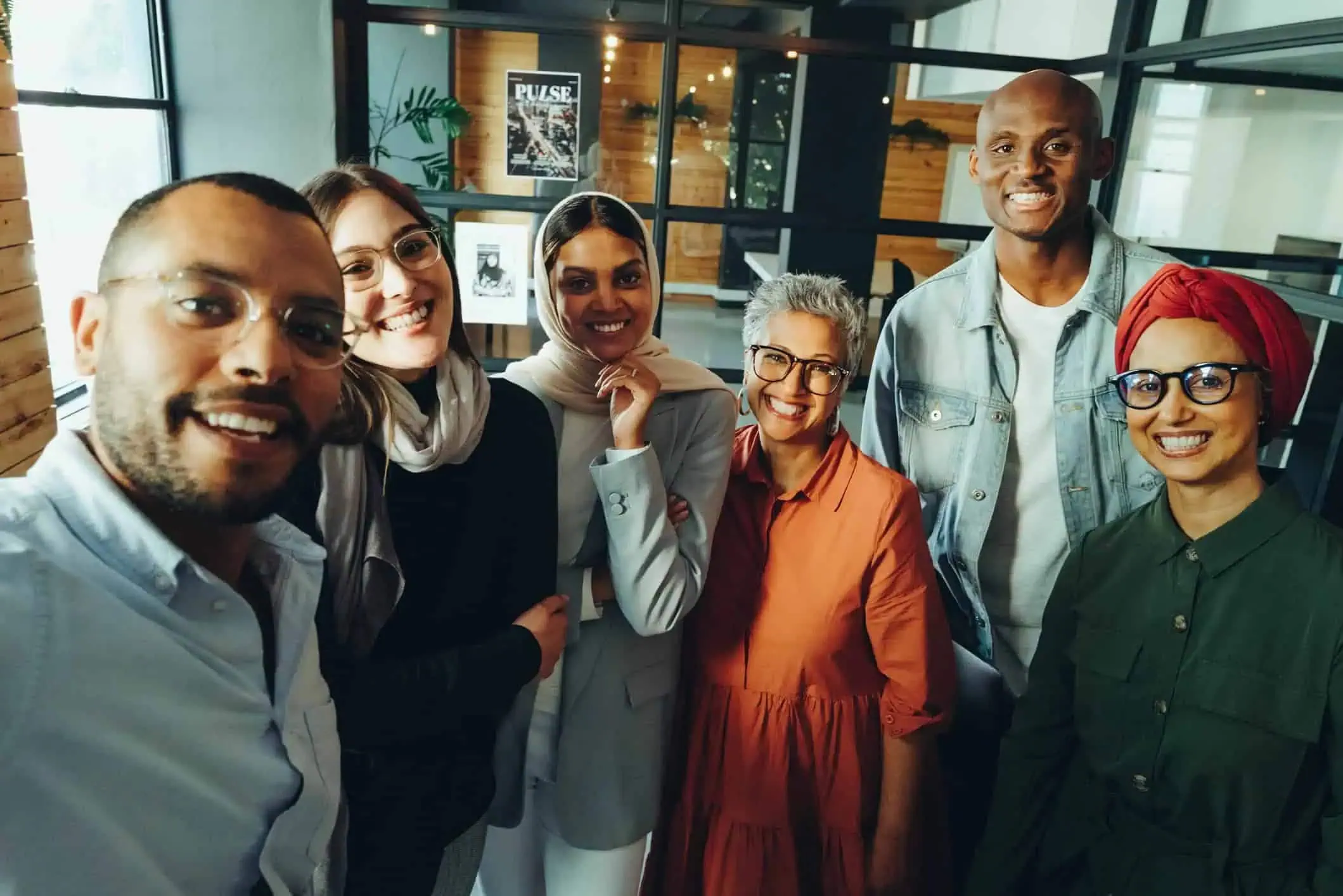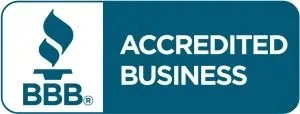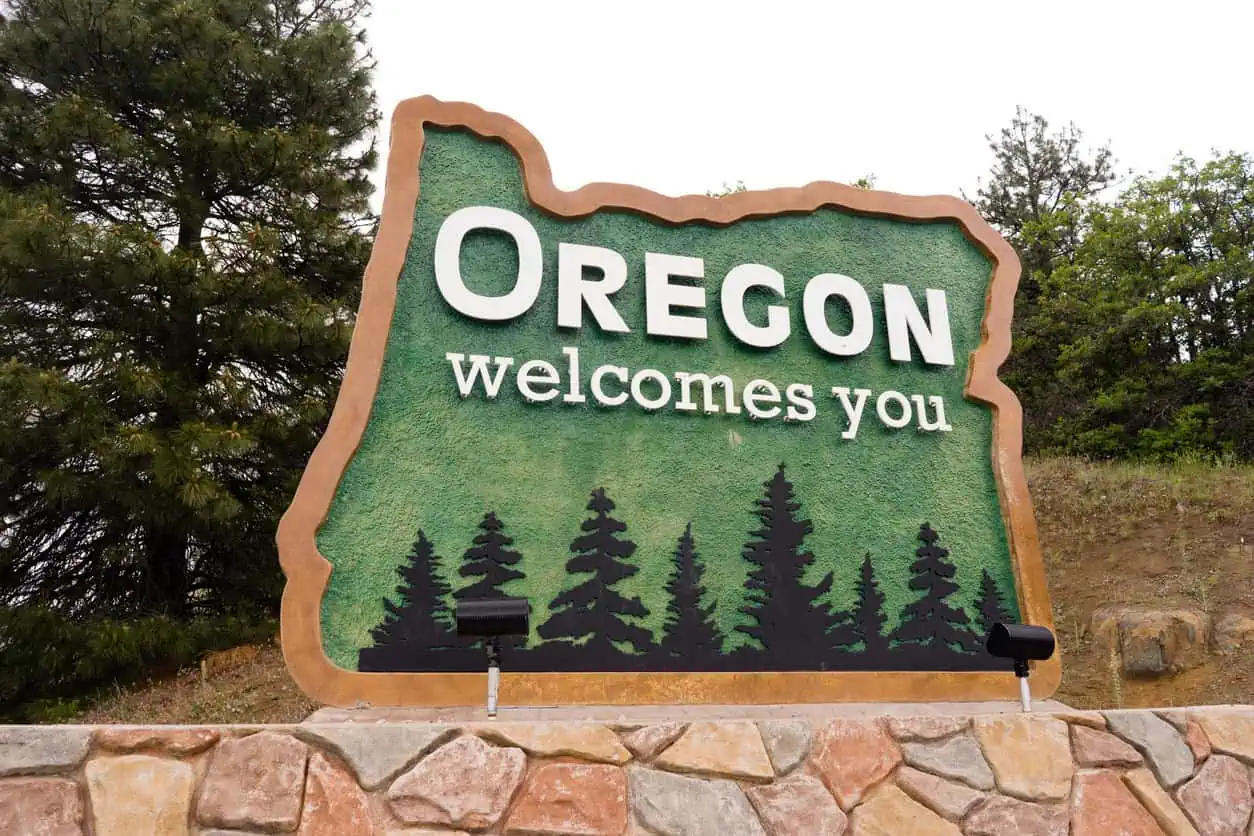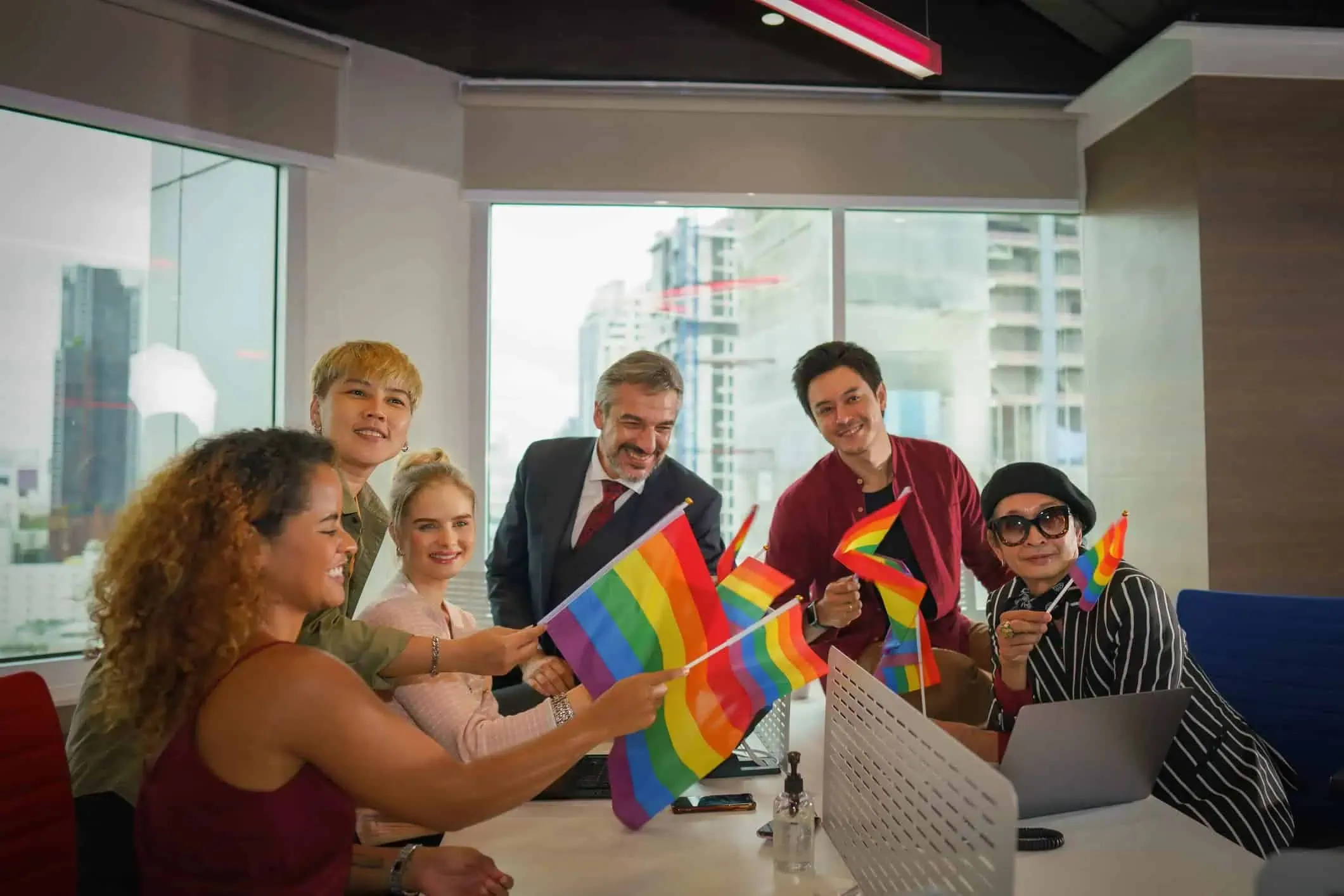
The Ultimate Guide to LGBTQ Jobs
Introduction
Welcome to our ultimate guide to LGBTQ jobs. This guide delves into the evolving landscape of employment for LGBTQIA+ individuals, shedding light on the importance of inclusive practices, the sectors leading the way in diversity, and the challenges that persist in achieving full inclusivity. Join us as we uncover the pathways to empowering and supportive professional environments that celebrate every identity.
Understanding LGBTQIA+
LGBTQIA+ stands for lesbian, gay, bisexual, transgender, queer or questioning, intersex, asexual, and plus. This acronym is an umbrella term that originated to encompass a variety of sexualities and gender identities. As our understanding of gender and sexuality has evolved, so has this acronym, reflecting the diversity and inclusivity of the community.
Changing Landscape of LGBTQIA+ Employment Opportunities
Today’s workforce is witnessing a remarkable shift in the employment opportunities for LGBTQIA+ individuals. A striking feature of this change is the increasing diversity within the LGBTQIA+ workforce itself. The younger generation of LGBTQIA+ employees is more racially and ethnically diverse, with a significant representation of women and various sexual orientations. For instance, in the 18-24 age group, a majority are non-white, and a substantial portion identifies as bisexual. This evolving demographic landscape highlights the need for organizations to adapt their diversity and inclusion (D&I) strategies to cater to more varied LGBTQ jobs.
Importance of LGBTQIA+ Inclusivity in the Workplace
LGBTQIA+ inclusivity in the workplace is crucial for creating a supportive and unified environment. Research indicates that when LGBTQIA+ employees can openly express their identities, they are more productive and engaged. An inclusive workplace is not only about formal policies but also about fostering a culture where every employee, regardless of gender and sexual identity, feels safe and valued. Inclusive environments benefit employers by enhancing employee satisfaction and retention and positively contributing to the overall workplace culture.
Challenges and Opportunities for LGBTQIA+ Individuals
Despite the progress made, LGBTQIA+ individuals still face significant challenges in the job market. They experience higher rates of economic insecurity due to employment and housing discrimination, as well as barriers to accessing well-paying jobs with necessary benefits. The impact of these challenges is even more pronounced among LGBTQIA+ people of color, transgender individuals, and those with disabilities. The global pandemic further exacerbated these disparities, revealing the urgent need for more inclusive and equitable employment practices.
Furthermore, historical discrimination against LGBTQIA+ individuals in the workplace, such as the exclusion from federal service and the lack of legal protections, underscores the ongoing struggle for equality. Although legislative and societal changes have improved conditions, there is still a significant journey towards complete inclusivity and equal opportunity for LGBTQIA+ individuals. The term “LGBTQ Jobs” refers to employment opportunities for the expanding LGBTQIA+ community and encapsulates the broader narrative of inclusivity, diversity, and equal rights in the workplace. As we move forward, it’s essential to continue addressing the unique challenges and harnessing the opportunities that arise in creating a truly inclusive work environment for LGBTQIA+ individuals.
Finding Your Niche
Professional paths are available in various fields that have already implemented or are beginning to implement inclusive policies for LGBTQ jobs.
Corporate Sector
- Tech: The tech industry has been a forerunner of inclusivity in LGBTQ jobs, with many companies actively promoting diversity and non-discrimination policies. Organizations increasingly recognize the value of having a diverse workforce, including LGBTQIA+ individuals, and are implementing inclusive practices and policies.
- Finance: Finance sectors are gradually embracing inclusivity, though challenges remain. Initiatives like employee resource groups (ERGs) and inclusive policies are increasingly common.
- Healthcare: Healthcare companies are increasingly aware of the need for inclusively filling LGBTQ jobs, both in patient care and within their workforce. This includes gender-neutral facilities and inclusive healthcare coverage.
- Law: Law firms and legal organizations are becoming more inclusive, with a growing focus on LGBTQIA+ rights and representation.
- Marketing: Marketing agencies are at the forefront of promoting diversity and inclusivity, recognizing the need to represent a broad spectrum of identities and experiences in their campaigns.
Public Sector
- Education: Educational institutions progressively focus on LGBTQIA+ inclusivity in policy and practice.
- Government: Governments are slowly making strides towards inclusivity, with policies evolving to be more inclusive of LGBTQIA+ employees.
- Non-profit Organizations and Advocacy Groups: These groups often lead the way in advocating for LGBTQ jobs rights and inclusivity, offering various career opportunities for those passionate about social justice.
Creative Industries
- Creative industries, such as arts, entertainment, media, fashion and design, have traditionally been more open and inclusive, offering a range of opportunities for LGBTQIA+ individuals. These fields value diverse perspectives and experiences, which enrich creative outputs.
Entrepreneurship
- Entrepreneurship, such as startups, small businesses or freelance work, present unique opportunities for LGBTQIA+ individuals to create inclusive and representative businesses. This sector allows for greater autonomy and the chance to impact inclusivity practices directly.
Specific Focus Areas
LGBTQIA+ Healthcare
Specialized healthcare services catering to the specific needs of the LGBTQIA+ community include:
- Cleveland Clinic’s: LGBTQIA+ Healthcare Access offers specialized services like PrEP, gender-affirmation care, and guidance for finding inclusive healthcare providers. They address specific challenges faced by the LGBTQIA+ community in accessing healthcare and provide resources for self-advocacy and navigating insurance coverage.
- Digital Health Companies
- Stork Club and Maven Clinic – Expand health benefits to include LGBTQ+ family building and health needs.
- BetterHelp’s Pride Counseling – Connects clients with queer-competent virtual therapists.
- TransHealth – Helps patients find queer-competent healthcare providers across various fields.
- Virtual Care Clinics: Companies like Plume and QueerDoc provide telemedicine visits, prescription deliveries, and legal consults for LGBTQ+ adults undergoing gender-affirming processes.
Legal Services
Some law firms have established practice areas specifically dedicated to LGBTQ jobs issues, offering services in areas such as family law, discrimination, and civil rights. Organizations such as Lambda Legal and the American Civil Liberties Union (ACLU) have specific projects and initiatives focused on LGBTQIA+ rights and advocacy.
Social Justice
A couple of organizations and roles dedicated to promoting equality and fighting discrimination against the LGBTQIA+ community include the Human Rights Campaign (HRC) which advocates for LGBTQIA+ equality through public policy and legislative change, and GLAAD, which works to provoke dialogue and promote cultural change for the acceptance and understanding of LGBTQIA+ individuals.
Education
Some educational institutions and organizations develop curricula and programs that specifically address LGBTQIA+ issues and advocate for inclusive educational environments. While GLSEN (Gay, Lesbian & Straight Education Network) focuses on ensuring safe and affirming schools for LGBTQIA+ students.
Diversity & Inclusion Consulting
These firms specialize in helping businesses implement and improve their inclusivity practices, offering services like training, policy development, and diversity audits. Furthermore, many corporations have internal diversity and inclusion departments or initiatives focusing on LGBTQIA+ inclusivity, often supported by external consultants.
Case Studies
- Shakambari Jaiswal, a bisexual Customer Success Associate, highlighted the importance of LGBTQIA+ inclusive policies and benefits in tech companies, emphasizing the psychological safety of being out in the workplace.
- Amy Collins, Vice President of Product Marketing at 1E, spoke about the transformative impact of coming out as a transgender bisexual woman in a leadership role, attracting more junior employees who appreciate her authenticity.
- Companies like Thoughtworks have committed to creating an inclusive community for LGBTQIA+ technologists, reflecting the world around us.
Resources for Job Seekers
LGBTQIA+ Specific Career Boards
- Pink Jobs: Offers a wide range of roles from pro-equality partners across various sectors.
- Funders for LGBTQ Issues Jobs Board: Focuses on opportunities in the philanthropic sector.
- Diversify Tech Job Board: Features companies with transparent Diversity & Inclusion efforts.
- Diversity Jobs – LGBTQIA+ Job Board: Lists LGBTQIA+ friendly job roles.
Professional Networks
- MyGwork: A global networking platform and job site for LGBTQIA+ professionals.
- Out Professionals: A leading LGBTQ jobs networking organization with job boards and networking opportunities.
- Lesbians Who Tech & Allies: A hiring and job posting platform designed for underrepresented techies.
- The Consortium of Higher Education LGBT Resource Professionals: Offers networking opportunities in higher education.
- Out to Innovate: A network for LGBTQ+ professionals in STEM fields.
Mentorship Programs
- StartOut: Supports LGBTQ+ entrepreneurs and startup founders with mentorship and networking opportunities.
- MyGwork: Besides being a networking platform, it offers mentorship opportunities for LGBTQ+ professionals.
These resources are essential for an LGBTQIA+ jobs seeker, providing platforms for finding inclusive workplaces, connecting with mentors, and accessing financial support for career advancement.
Navigating the Job Search: Strategies for Success
In the modern job market, LGBTQIA+ individuals face unique challenges and opportunities. Let’s go over practical strategies to help navigate the job search effectively, emphasizing the importance of authenticity and preparedness.
Resume and Cover Letter Tips
Balancing professionalism with personal authenticity is crucial when crafting your resume and cover letter. Here’s how:
- Highlight Relevant Skills and Experiences: Clearly showcase your skills and experiences that are relevant to the job. If you have worked with LGBTQIA+ organizations or initiatives, consider including these experiences as they can demonstrate valuable skills like leadership, community engagement, and diversity awareness.
- Showcase Your Unique LGBTQ Perspective: Your unique perspective as an LGBTQIA+ individual can be an asset. Highlight experiences demonstrating your ability to navigate and bridge diverse cultures or viewpoints.
- Authenticity: Be true to yourself in your resume and cover letter. If your involvement in LGBTQIA+ organizations is a significant part of your professional experience, don’t shy away from including it. Working for an organization that values and respects your whole self is important.
- Tailor Your Application: Customize your resume and cover letter for each job, focusing on how your unique experiences and skills make you an ideal candidate for that specific role.
Network Building
Networking is key in any job search. For LGBTQ jobs, specific strategies can be particularly effective:
- Utilize LGBTQ-Specific Professional Networks: Engage with professional networks like Out Professionals or Lesbians Who Tech & Allies. These platforms can provide valuable connections and insight into job opportunities.
- Attend LGBTQ-Specific Events: Participate in events, workshops, or conferences tailored to the LGBTQIA+ community. These events can be great opportunities to meet potential employers, mentors, and peers.
- Leverage Online Platforms: Use LinkedIn and other online platforms to connect with LGBTQIA+ groups and professionals in your field.
Interview Preparation
Preparing for interviews involves more than just rehearsing answers to common questions. For LGBTQIA+ individuals, it also means researching the company’s stance on inclusivity:
- Research the Company’s LGBTQIA+ Inclusivity Policies: Investigate whether the company has policies that support LGBTQIA+ employees, such as non-discrimination policies, inclusive healthcare benefits, and supportive company culture.
- Prepare for Potential Biases: While you should not have to face discrimination, it’s wise to prepare for potential biases. Practice how to address any inappropriate questions or comments professionally.
- Be Yourself: Feeling comfortable and authentic in your interview is important. Consider discussing your experiences in LGBTQIA+ organizations if it feels appropriate and relevant to the job.
Negotiation Tactics
Negotiating your job offer is a critical step in ensuring that you receive fair compensation and benefits:
- Know Your Worth: Research industry standards for the position you’re applying for. Tools like Glassdoor and Payscale can provide insights into salary ranges.
- Advocate for Fair Compensation: Approach negotiations confidently. Clearly communicate why you deserve the proposed salary and benefits based on your skills and experience.
- Inquire About LGBTQIA+-Inclusive Benefits: Specifically ask about benefits like LGBTQIA+-inclusive healthcare coverage, partner benefits, and support for transgender healthcare needs, if applicable.
- Prepare to Walk Away: If a potential employer is unwilling to meet reasonable requests or their values do not align with yours, be prepared to walk away. Working in an environment that respects and supports you fully is important.
By implementing these strategies, LGBTQIA+ job seekers can navigate the job market more effectively, ensuring they find positions where they are valued and can thrive professionally.
Fostering Inclusive Workplaces
Creating a safe and welcoming environment for LGBTQIA+ employees is crucial for any forward-thinking organization. Here are some best practices and strategies for fostering LGBTQIA+-inclusive workplaces:
Employer Best Practices
Implement Anti-Discrimination Policies and Unconscious Bias Training
- Establish clear policies that explicitly prohibit discrimination based on sexual orientation, gender identity, and intersex status.
- Conduct regular unconscious bias training sessions to educate employees about LGBTQIA+ issues and how to avoid biases in their interactions and decisions.
Offer LGBTQIA+-Inclusive Employee Benefits and Healthcare Coverage
- Ensure that employee benefits packages are inclusive of LGBTQIA+ employees, including equal parental leave, adoption policies, and healthcare coverage that encompasses gender-affirming procedures and LGBTQIA+-specific health needs.
Establish Employee Resource Groups (ERGs) for LGBTQIA+ Individuals
- Create ERGs to provide support, networking, and advocacy opportunities for LGBTQIA+ employees. Ensure these groups have clear aims, resources, and support from top leadership.
Celebrate Diversity Through Inclusivity Workshops and Cultural Events
- Organize inclusivity workshops, training sessions, and cultural events celebrating LGBTQIA+ diversity. This can include participation in Pride events and internal awareness campaigns.
Employee Activism
Encouraging LGBTQIA+ Employees to Advocate for Themselves
- Empower LGBTQIA+ employees to speak up about their needs and concerns. Encourage them to take active roles in ERGs and diversity initiatives.
- Provide platforms where LGBTQIA+ employees can share their experiences and contribute to policy-making processes.
The Future of LGBTQ Jobs
Emerging Trends and Opportunities
- The future landscape of LGBTQ jobs is expected to be more inclusive, with an increasing number of companies recognizing the value of diversity.
- Emerging trends include a broader focus on intersectionality, recognizing the overlapping identities and experiences within the LGBTQIA+ community.
- There’s an increasing emphasis on inclusive leadership and representation at all levels of the organization.
Opportunities in Emerging Fields and Roles
- There are growing opportunities in fields that directly impact LGBTQIA+ issues, such as diversity and inclusion consulting, LGBTQIA+ healthcare, and advocacy.
- Technology and remote work also provide more opportunities for LGBTQIA+ individuals to work in diverse environments.
By implementing these strategies, organizations can create more inclusive workplaces that not only respect and support LGBTQIA+ employees but also leverage their unique perspectives to foster innovation and growth. It’s important for companies to recognize that fostering an LGBTQIA+-inclusive workplace is an ongoing process, requiring continuous effort and adaptation to the evolving needs of the workforce.
FAQs
What does LGBTQIA+ stand for?
LGBTQIA+ refers to lesbian, gay, bisexual, transgender, queer or questioning, intersex, asexual, and the plus represents other sexual identities.
Why is LGBTQIA+ inclusivity important in the workplace?
Inclusivity in the workplace is crucial for creating supportive environments where LGBTQIA+ employees feel safe and valued, leading to increased productivity and job satisfaction.
What are some challenges LGBTQIA+ individuals face in employment?
LGBTQIA+ individuals often encounter higher rates of economic insecurity, employment discrimination, and lack of access to necessary benefits, which are more pronounced among minorities within the community.
What sectors are noted for their LGBTQIA+ inclusivity?
Sectors like technology, healthcare, finance, law, and creative industries have been recognized for implementing inclusive policies and practices.
What resources are available for LGBTQIA+ job seekers?
Resources include LGBTQIA+-specific job boards, professional networks, and mentorship programs to provide support and enhance employment opportunities for LGBTQIA+ individuals.
Words of Encouragement for LGBTQIA+ Job Seekers
Seeking LGBTQ jobs? The journey isn’t just about finding a job and a place where you can be your authentic self. Your resilience and contributions are invaluable and enrich the workplaces and communities you are a part of. Remember, your unique perspectives and experiences are assets that can drive innovation and foster a more inclusive and empathetic society.
As we celebrate your courage and resilience, it’s essential to acknowledge that the journey toward full inclusivity is ongoing. The progress made so far in LGBTQ jobs and workplace inclusivity is a testament to the strength and perseverance of the LGBTQIA+ community and its allies. Your efforts in advocating for equality and inclusion pave the way for a more diverse and accepting professional world.
The importance of LGBTQIA+ representation in the workforce cannot be overstated. It is critical to building equitable, innovative, and compassionate organizations. As job seekers, employers, or allies, let’s continue championing diversity and inclusion, ensuring that the workplace is a space where everyone, regardless of gender or sexual orientation, can flourish.
Conclusion
Understanding the landscape of LGBTQIA+ representation and LGBTQ jobs highlights the importance of diversity and inclusion in the workplace.
Key Points Recap
- Diverse Career Paths: The LGBTQIA+ community has made significant strides in various sectors, including the corporate sector, public services, creative industries, entrepreneurship, and specific areas like healthcare, legal services, and social justice.
- Inclusivity in the Workplace: Implementing LGBTQIA+-inclusive policies, establishing Employee Resource Groups, and conducting sensitivity training are crucial steps toward creating safer and more welcoming environments for LGBTQIA+ employees.
- The Role of Employee Activism: Encouraging LGBTQIA+ individuals to advocate for themselves and participate in shaping inclusive workplaces is vital for ongoing progress.
- Emerging Trends: The future of LGBTQ Jobs looks promising with a growing emphasis on inclusive leadership, intersectionality, and representation at all levels of organizations.
Join us in promoting diversity and inclusivity in employment; visit Diversity Employment today and upload your resume. Discover how you can make a difference in creating a more equitable workplace!
